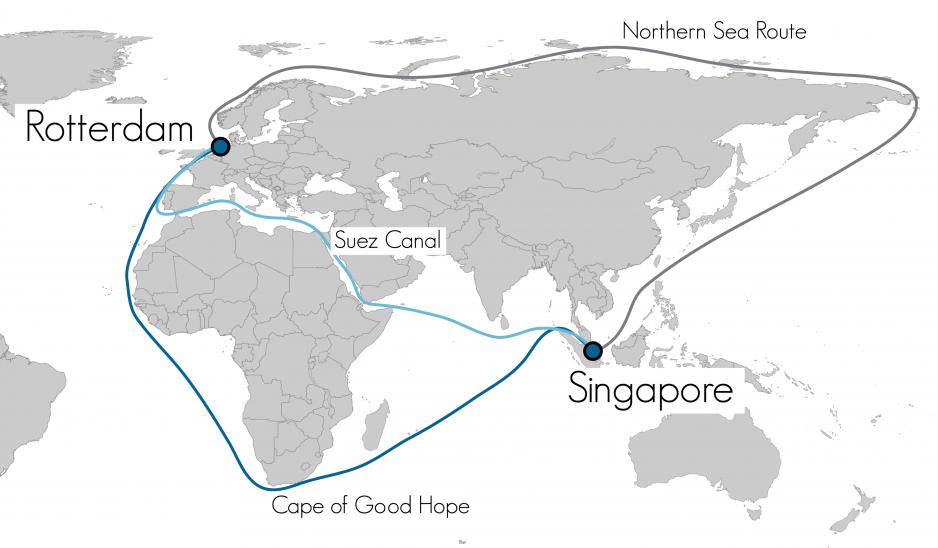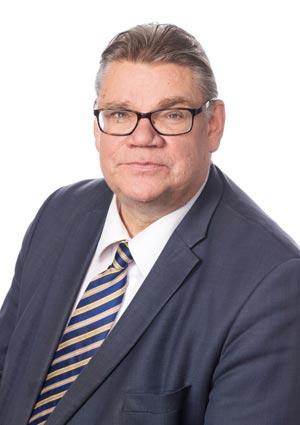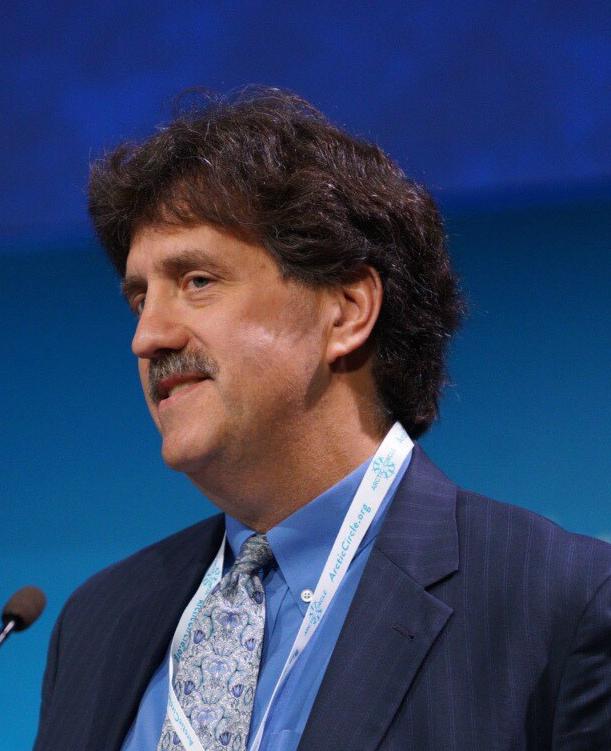China’s Polar Silk Road: Where does it lead?

A spider expanding its web. Another move in president Xi’s global chess play. A long-term plan to take over where president Trump’s USA is leaving a vacuum. A signal that China aims to become a polar superpower.
These were some of the comments about China’s Arctic White Paper made by Finland’s foreign minister Timo Soini and experts from the U.S., Canada and New Zealand during recent think tank events in Washington.
China’s recent White Paper on the Arctic received considerable attention at foreign minister Soini’s presentation at Washington’s Center for Strategic and International Studies, and at an expert’s conference at Wilson Center last week. All agreed on this: China will not let Arctic business be the business of the Arctic countries alone.
"China plans for the long term. They have been skillful in conveying to the world that the Arctic belongs to all. The White Paper is part of a longer strategy, and they will try to find a way to be part of the game even though they cannot sit at the Arctic table like the U.S and Russia," said Soini.
President Xi’s vision
At the Wilson Center’s conference last week, experts from several countries shared their view on the White Paper and China’s “Polar Silk Road”. They all agreed that the strategy is part of a global game where China insists that the Arctic belongs to all, not just the countries in the region.
"China wants to become a polar great power. The strategy is part of president Xi’s vision for the years to come. The White Paper does not reveal China’s strategic intentions, but it is significant, especially as it is the first White Paper on an area outside of China’s own territory", said Anne-Marie Brady, professor at New Zealand’s Canterbury University and fellow at Wilson institute, adding that China is now stepping into the vacuum left by the new Trump world.
David Balton, until recently U.S.’ top Arctic diplomat and now a fellow at Wilson Center, called the White Paper “significant”, and reminded the audience of China’s active and constructive participation as an observer in the Arctic Council. He expressed doubt that the Arctic countries would embrace China’s Polar Silk Road concept, and highlighted one issue conspicuously missing in the White Paper: A commitment to reduce black carbon emissions.
Sherri Goodman, senior fellow at Wilson Center and former Deputy Undersecretary of Defense, expressed concern that the China strategy was like "a spider expanding its web".
"China wishes to become a polar great power and participate in all things polar, including setting global norms. They are expanding across the globe and plan for decades ahead. The U.S. perspective is short. Our under-investment in Arctic capacity limit our ability to operate in the Arctic, and this is worrisome," she said.
Arctic Council: Steady as they go
Finland took over the Arctic Council chairmanship from the United States last year, and Finnish Foreign Minister Timo Soini recently gave a presentation at Washington’s Center for International and Strategic Studies. He emphasized the steady cooperation in the north:
"There is a generally negative trend in international relations. The post-World War II order is on shaky grounds. But the U.S. chair kept cooperation in the Arctic Council on course. Finland will continue that constructive cooperation. We will not rock the boat," Soini promised.
In spite of major changes in U.S. climate policy, Soini insisted it is still possible to talk about climate issues among Arctic Council colleagues.
"Climate change is our number one challenge in the Arctic. It is a priority for Finland. I believe we can still talk about the issues and cooperate in a practical way. We just have to do it without mentioning those two little words "Paris" and "agreement"," Soini said with a smile.
Global status
With regards to the Chinese White Paper, Finnish Foreign Minister also pointed out China’s long term strategy in the North, and said the paper was part of a worldwide plan.
"China invests heavily in the Arctic, and the new sea routes are a big deal for Asia. They have used challenges such as global warming to show worldwide impact of what happens in the north. There is no doubt they want to find a way to be in," he said, while emphasizing that the Arctic hopefully would continue to be an area of cooperation even when tension is present elsewhere.
"I doubt that the Arctic will be a tension area. But there is the danger that conflicts in other areas can spill over into the north," Soini warned.
Warnings were heard at the Wilson Center as well:
"The new northern strategy reveals the global role President Xi wants to play. While we welcome China as a player, we must be vigilant," professor Anne-Marie Kelly said.




